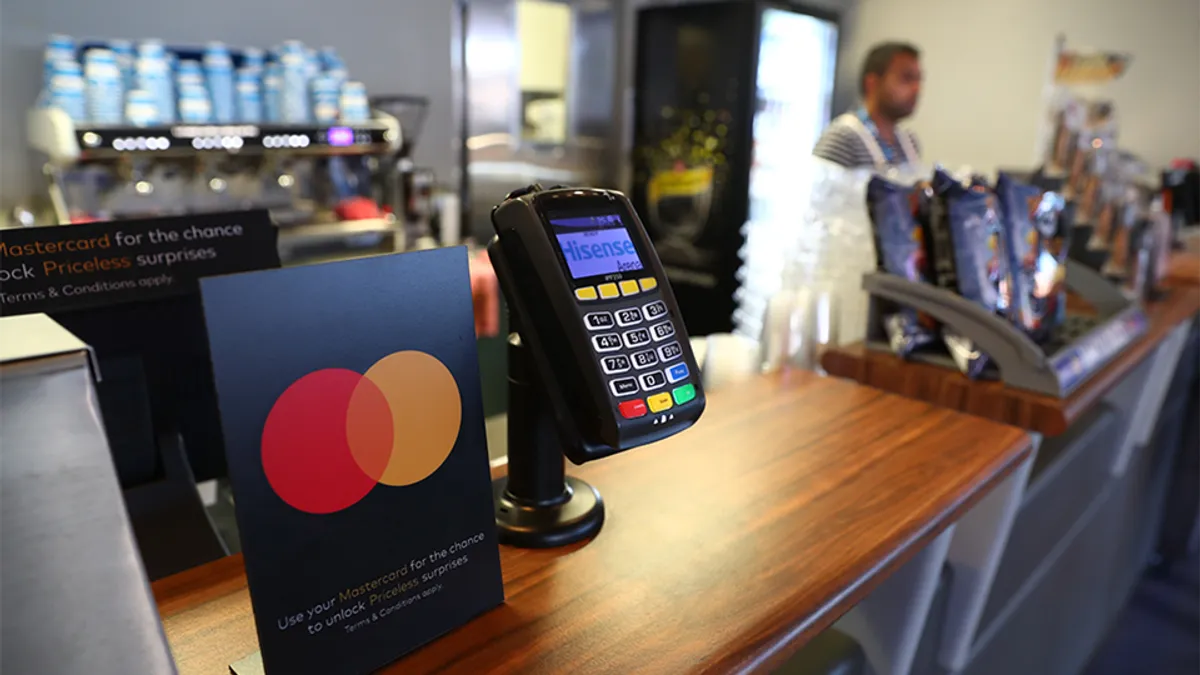Mastercard is gaining increasingly from the sale of ancillary services, namely related to cybersecurity and data, that complement its traditional card network offerings.
In the company’s most recent third-quarter results reported last week, Mastercard reported an 18% jump to $2.74 billion in the revenue derived from its value-added services, more than the 13% jump in overall revenue to $7.37 billion, according to a presentation to investors last Thursday.
Over the past seven years, the company has focused on selling more of those complementary services to merchant clients, specifically with respect to safeguarding their digital transactions and also to help them make sense of the rising amount of customer data they’re receiving, Mastercard CEO Michael Miebach said.
“Overall, we believe this is differentiated,” Miebach told analysts on the company’s earnings webcast, referring to the company’s value-added services category. “You've seen strong growth for us for years, you've seen another set of strong numbers for this quarter, and it's been boosting the revenue of the company and our yield.”
The Purchase, New York-based company’s third-quarter net income rose 2% to $3.3 billion as revenue rose 13% to $7.4 billion, according to its Oct. 31 earnings release.
At least one set of analysts, those at the financial firm William Blair, believe that Mastercard is out-running its larger rival Visa when it comes to boosting revenue through the sale of the ancillary services. The smaller network’s higher market valuation, relative to its earnings, shows it gaining an edge, partly because of its superior set of value-added services capturing more revenue, the analysts said last week after the two card networks reported quarterly earnings.
“Part of our bullish thesis is that Mastercard’s VAS portfolio is a linchpin of durable above-average organic revenue growth,” the analysts said in their report. “We see VAS advantages as quantitative and qualitative compared to Visa.”
The analysts noted that more than half of those Mastercard ancillary services relate to providing clients with tools for cybersecurity, fraud prevention and countering other risks. While Visa also offers such services, its value-added portfolio is more focused on additional processing and customer conversion services.
Both firms recently sought to boost their cybersecurity services through acquisitions, with Mastercard buying Recorded Future for $2.65 billion in September, and Visa acquiring Featurespace, reportedly for about $1 billion.
William Blair recommends both the card network stocks to their clients, but said it favors Mastercard, partly because of the demonstrated benefits of its particular value-added services offering. “While both are strong offerings, we submit that some of Mastercard’s share gains are being driving by VAS value, creating a competitive advantage,” the analysts said.
In reporting its fiscal fourth-quarter results Oct. 29, Visa said its net income rose 14% to $5.3 billion as revenue climbed 12% to $9.6 billion. For the full year, net income also rose 14% to $19.7 billion as revenue increased 10% to $35.9 billion, according to the earnings release.











